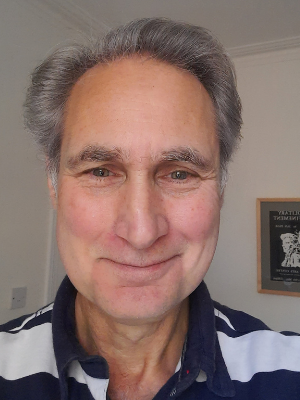David Jackson – PhD Drama and Theatre Studies
PhD Drama and Theatre Studies student David Jackson has been studying for a PhD part time alongside his work commitments. We found out more about his experience as a researcher at the University of Birmingham.

Why did you choose to study Drama and Theatre Studies?
I’m a mature student with many years of study and professional practice behind me, so it wasn’t really a case of choosing a field. I made that decision a long time ago. It was more a case of selecting a specialist area within a field that was already familiar. I thought about PhD study for a long time before I started it and I do think it’s essential to find a topic you are passionate about. As this level of research is largely a solo journey, it’s so important to be fully engaged with your investigation, to sustain you through the ups and downs of what can be a long and challenging process. In my case, the puzzle I wanted to solve, or at least to understand better, was the role of emotion in actor training
Why did you choose to undertake research at the University of Birmingham?
My PhD journey began at the Royal Central School of Speech and Drama, where I completed my MA. RCSSD was one of the first drama schools in the country, specialising in training for professional actors. So, you would expect the institution to be one of the best places to find expert supervision for an actor training project. In fact, mainly because of various staff changes, my project got off to a rocky start. I transferred to Birmingham because I wanted to work with Dr Rose Whyman, whose expertise and research interests were a much better match with what I wanted to explore. I am extremely grateful to Rose, who helped me get the project back on track with the minimum of fuss, at a time when it would have been easy to give up all together. Academic advisors always emphasise how important it is to find the right supervisor, and I think my individual story illustrates how vital it is.
What are the best things about your course?
As a part-time research student, based outside Birmingham, I don’t often come into direct contact with the academic community. However, I am very much aware that I belong to a large, dynamic school and a very active department. Because of my comparatively distant relationship to the course, the overwhelming positive is the contact with my supervisor. I particularly appreciate the quality of the feedback on my work and the patient and methodical progress towards the final goal: submission of the thesis. It’s perfectly possible to complete a PhD in three-four years, if you are devoted to it full-time. But for other researchers, especially part-time students, progress can be interrupted by career developments, family commitments and many other factors. Interruptions can easily double, if not triple, the standard duration of the course. I’m delighted to finally have the end in sight
What is life like as a researcher at the University of Birmingham?
I did an undergraduate drama degree at Manchester University and, naturally, life as a researcher is very different. I suppose my situation is quite extreme, but not unheard of, for a PhD student: I am rarely at the actual campus. For obvious reasons, all my supervisions for the last eighteen months have been online, which has worked very well. I can also access many of the library resources remotely. Similarly, I recently delivered a paper at an online seminar and got involved with the EDACS mentor scheme. In other words, it’s different from the traditional model of university life, but it’s one that works very well for me
What support have you received during your PhD?
I think I’d mention two things. First, the upgrade is something of a rite of passage for the PhD student. As fellow researchers will know, you are officially registered as an MPhil student until you complete work of sufficient quality to upgrade to PhD. There is an internal examination in the form of a viva with a member of staff who is not involved in your work, and this, of course, is potentially nerve-wracking. Obviously, you need to be well prepared, but I found the process supportive, helpful and a spur to continue. My biggest challenge has been that for seven of the last eight years, I worked full time (in drama schools that were part of a university). At times, the pressures of the job made it impossible to find the time and space to focus on research, and on several occasions, I needed to apply for Leave of Absence. This was always handled sensitively and I never felt I was abandoning my studies altogether
Outside of your research, what experience have you gained and how will it help you in the future?
For me, all the benefits of the course are research-related. The topic is important to me: I’ve transformed my understanding of both acted emotion and emotion experienced spontaneously in life. You can’t do a research degree without cultivating numerous transferrable skills, such as self-discipline, resourcefulness and perseverance which are bound to be useful in any future endeavours. I do have some publications under my belt, but I’m also excited by the prospect of publishing and disseminating my ideas further.
Find out more about our PhD Drama and Theatre Studies programme over on our course pages.